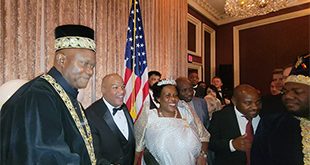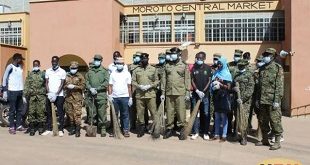
Kampala, Uganda | THE INDEPENDENT | As the government grapples with defining the cluster of vulnerable Ugandans who deserve COVID-19 relief in the ongoing second lockdown, economists say it is vital that the government creates a database that can be used for such interventions in future.
Such a database would be updated regularly, says Dr. Paul Corti, a researcher at Economic Policy Research Center, Makerere, a think tank.
“Going forward, we need to create a database with names, addresses and phone numbers of all vulnerable people, they are not many, just 20 percent of the population and we know where they are,” he told URN in a phone interview.
“After this emergency, we need to create this database, not just create and sit down, it must be updated because people change and transit, people get out of poverty and fall into it again,” he added.
Dr Francis Mwesigye, a senior researcher also at the Economic Policy Research Center says it is because of absence of such a database that government is finding it hard to define who is vulnerable and who is not. Without a database, he says, everyone will stammer when asked the question: who are vulnerable Ugandans?
If there was a database, he says government would have started with sending relief to the most vulnerable people as defined by Uganda Bureau of Statistics -UBOS data.
Dr Mwesigye says there is a database of all households in Uganda which has been under creation for a long time at the Ministry of Gender, Labour and Social Development.
“The idea here was, it would be used in supporting these livelihood interventions where if you give someone money, you don’t duplicate,” he says.
The recently appointed Prime Minister Robinah Nabbanja revealed that the government won’t be giving food but cash transfers through mobile money.
She has also said vulnerable people will be identified through metrics such as mobile money transfers. People who have received more than 500,000 Uganda shillings can’t belong to the vulnerable cluster.
After incessant criticism of this metric, media reports now indicate that government will use local council leaders to identify vulnerable people.
Both Dr. Paul Corti and Fred Muhumuza, an economist at Makerere University say mobile money transfer is a better way of delivering food aid to those in need.
“Studies have found out that cash transfers are preferred and more beneficial, for instance, you don’t know the needs of a person,” says Corti. “It is a good experiment. Going forward, I would encourage them to be making cash transfers rather than giving people items.”
“It’s efficient,” says Dr Muhumuza. “Once the database is completed, money can be sent in a day. And the right people will be identified if government uses the right procedure of analysing data from telecom companies as well as using local council systems.”
To get authorization from people to use their historical data, Muhumuza says the government can send text messages through telecom companies.
He thinks the government should not give vouchers. “Those without phones, I wouldn’t give them vouchers. I would still ask them to give a phone to a person who they trust who can pass on the money to them.”
Government, Muhumuza says, can send text messages to people through telecom companies requesting people to consent to the use of their historical transactions data.
But he disagrees with the metric of saying if a person has received 300,000 or 500,000 Uganda shillings through mobile money, he or she should not be eligible.
“You need to make decisions using average over time because there are people who have lost loved ones and friends are sending them condolences,” he says. “It’s possible to find that someone’s phone received 800,000 at once but when you take an average of 6 months, you’re able to pick up those isolated cases.”
*****
URN
 The Independent Uganda: You get the Truth we Pay the Price
The Independent Uganda: You get the Truth we Pay the Price



